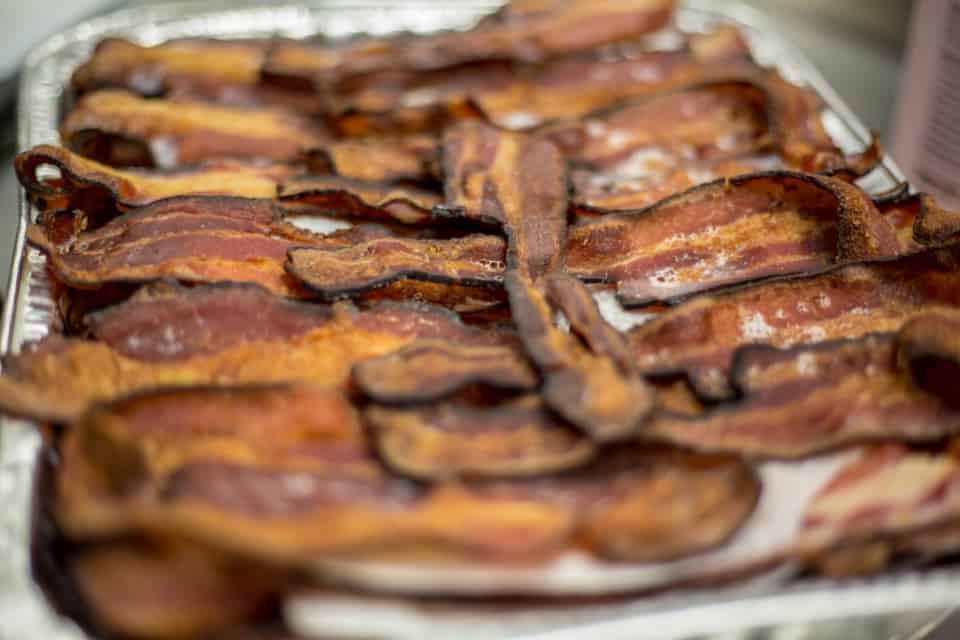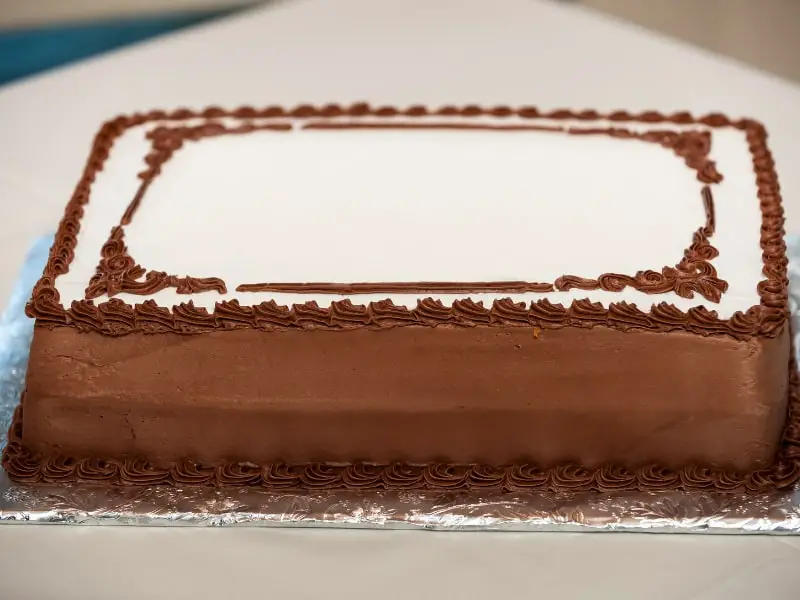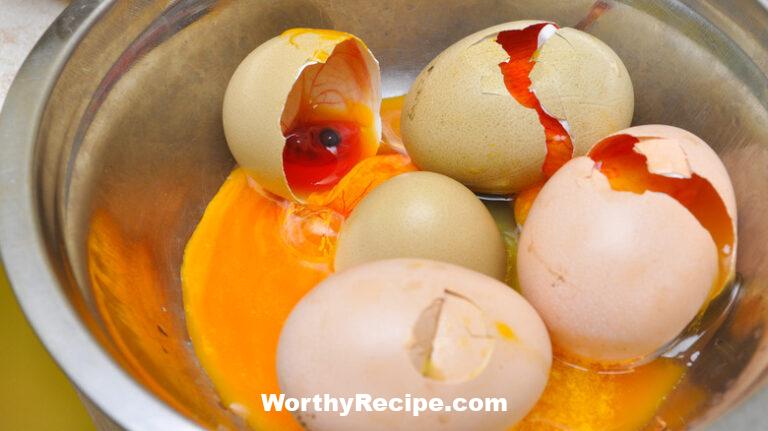Bacon lovers worldwide would agree that there is no wrong way to eat bacon. But have you ever wondered if it’s safe to eat cold cooked bacon? Cold cooked bacon is an ideal food for picnics, packed lunches, and breakfast on-the-go. It’s a popular option for those who don’t have the time to cook their breakfast in the morning. However, there are still concerns about its safety and nutritional value.
This article will explore whether it’s safe to eat cold cooked bacon, how to consume it safely, and alternative options for those who prefer healthier alternatives.
Understanding Cold Cooked Bacon
Cold cooked bacon often refers to leftover bacon that has been precooked and stored in the refrigerator for later use. Cooking bacon involves frying thin slices of pork belly or back meat over low heat until crispy.
The main difference between hot and cold-cooked bacon is their texture. Being stored in the refrigerator causes cold cooked bacon to lose its crispness; thus, people who dislike chewy or rubbery texture might not like this.
Nutritionally, cold-cooked bacon retains many of its nutrients after cooking and cooling down. Pork is a rich source of protein, vitamin B12, zinc, selenium – all are important nutrients needed by our body [1].
Safety Concerns with Cold Cooked Bacon
There are several safety concerns associated with consuming cold cooked bacon e.g high sodium content and illness risks due to undercooking or poor storage techniques.
A severe concern commonly associated with cured meats such as ham and bacon is a high salt level intake increasing one’s risk of developing hypertension or heart disease [2]. Therefore individuals suffering from medical conditions that require salt restriction should be cautious when consuming cured meats including when one eats unconsciously but habitually during the day.
Another safety concern includes illnesses caused by undercooked meat or poor storage practices leading to foodborne diseases can cause many symptoms ranging from mild gut problems e.g nausea and diarrhoea to severe ones such as those transmitted by bacteria listeria that can cause fever, sepsis, or meningitis (3).
In general, consuming pork that has not been heated adequately can be dangerous. That also includes improper handling methods after cooking. After cooking bacon, it should be stored correctly in the fridge within two hours of cooking to avoid any potential bacterial growth.
How to Eat Cold Cooked Bacon Safely?
To safely consume cold cooked bacon, proper storage techniques and food reheating methods are necessary. As mentioned earlier, the risks of eating undercooked meat include ingesting bacteria like salmonella and listeria.
When reheating cold cooked bacon, you should first ensure it is well chilled so that when reheated it achieves a minimum temperature of 160°F (71°C) [4]. One of the best ways to reheat cold cooked bacon is by heating it up in an oven at a temperature of about 350° F for approximately ten minutes. Be sure to check on the progress frequently, so it doesn’t burn.
Alternatively, one could use a microwave as an option when one needs less time for reheating; however, there is a possibility that doing so will make your bacon chewy or too soft [5]; therefore using low heat power may reduce this risk.
For safety reasons try avoiding undercooked salt-cured meats whenever possible since they have risks correlated with them.
Some creative ways to consume leftover cold-cooked bacon include sprinkling crumbled pieces over salads or adding them to sandwiches and quesadillas. A great way to cook with precooked bacons would be by using them as an ingredient by adding complementary flavours into dishes such as omelettes or soups.
Storing Cold Cooked Bacon
Proper storage technique is crucial for ensuring that your cold cooked bacon remains fresh and safe for consumption. It is advised to store leftover bacon in an airtight container or wrapped up tightly in plastic wrap. When storing food, keep temperatures below 40F (4°C) to prevent bacterial growth [6].
It is best to eat precooked bacon within three to four days after purchase or cooking since it’s a processed meat that contains high sodium levels and other additives. If you are planning on keeping bacon longer than this time frame, consider freezing them for later use.
Can You Reheat Cold Cooked Bacon?
Yes. One can reheat cold cooked bacon using various methods as discussed above.
However, when reheating cold cooked bacon, the process should be done with caution not to overcook the meat or cause it to become too dry or rubbery. Remember to let it reach and maintain an internal temperature of 71℃ before removing it from heat, regardless of your chosen method of reheating.
Reheating food is safe if you follow proper guidelines because otherwise leaving leftovers at room temperature can lead to increased bacterial growth and subsequently increases risk of consuming bad bacteria causing infections [7]
After being reheated once, do not attempt to reheat again since it will spoil faster the more one reheats pre-cooked meals as further heating may activate bacteria or other organisms.
Alternative Options Instead of Eating Cold Cooked Bacon
If one prefers less salty meats and healthier options; there are several alternatives including leaner protein-rich foods with lower salt content. It is important for individuals with dietary restrictions such as those following vegan diets need absorption substitutes that contain similar amounts of protein; For instance substituting sautéed tempeh strips for pork belly cuts when cooking substitutes healthy non-meat options [8]. Some plant-based side dishes high in protein include tofu-egg salad sandwich – tofu mixed with avocado and sundried tomatoes for added flavor.
For those unsure about how much salt they should have can monitor their salt intakes using apps like My Fitness Pal which allows users to track daily meals and have a record of the nutritional value of their food [9].
Conclusion
The question “Can you eat cold cooked bacon?” is one that has been asked many times. Cold cooked bacon can be eaten, but it should be done safely following proper storage techniques, reheating methods, and reasonable consumption limits for one’s health sake. There are several alternative options for those who prefer less salty meats and healthier choices.
While bacon may not be the healthiest breakfast option due to its high sodium levels and additives content, it’s still popular worldwide because of its flavoursome taste when prepared well. Consider moderation and understand appropriate consumption guides when eating precooked bacon or considering meat-based substitutes.
In conclusion, responsible planning about the number of cured meats consumed as part of daily meals is advised since the addictive nature of eating too much cured meat daily with unhealthy side effects can easily occur if not properly regulated.
Bacon will remain undeniably perenially delicious for years to come at breakfast tables around the globe, whether served hot or cold. Nevertheless, be moderate in ingestion.
References [1] Bacon nutrition facts – Live Science [2] Mike Geary – The truth about Bacon & Sodium – www.truthaboutabs.com [3] Foodsafety.gov – Foodborne Illnesses [4] Safety consumption guide foodsafety.gov: Safe Minimum Cooking Temperations [5] How long does it take on Food network’s website to reheat precooked meet? [6] United States Department Of Agriculture USDA: Food Storage Guidelines -FDA [7] Guidelines on foodborne illnesses from Centers for Disease Control [8] Healthy substitutes for pork belly cuts blog by purewellness.net [9] An App Motivated Nutritional Interventions Review.ncbi.nlm.nih.gov/pubmed/.
Q&A
Q: Is it safe to eat cold, cooked bacon straight out of the fridge?
A: Generally, yes. As long as the bacon was cooked properly and stored at a safe temperature, eating it cold should not pose any health risks. However, it may not taste as good as when it’s heated up!
Q: Does eating cold cooked bacon affect its texture or flavor?
A: Eating cold cooked bacon may cause the bacon to be more chewy and less crispy than when it is fresh off the skillet. As for flavor, some people prefer the taste of warm, crispy bacon over chilled bacon.
Q: How can I store leftover cooked bacon to eat cold later?
A: To ensure your leftover cooked bacon stays fresh and safe to eat while stored in the fridge, make sure it is placed in an airtight container or sealed plastic bag. It can be kept in the fridge for up to one week before it becomes unsafe to consume.
Q: Can I cook raw bacon by frying it directly from frozen?
A: While possible, frying raw frozen bacon may result in uneven cooking and splattering grease due to ice crystals on the meat melting rapidly when heated. It is recommended to thaw frozen raw bacon before cooking by placing it in the refrigerator overnight or using a defrost setting on your microwave beforehand.





